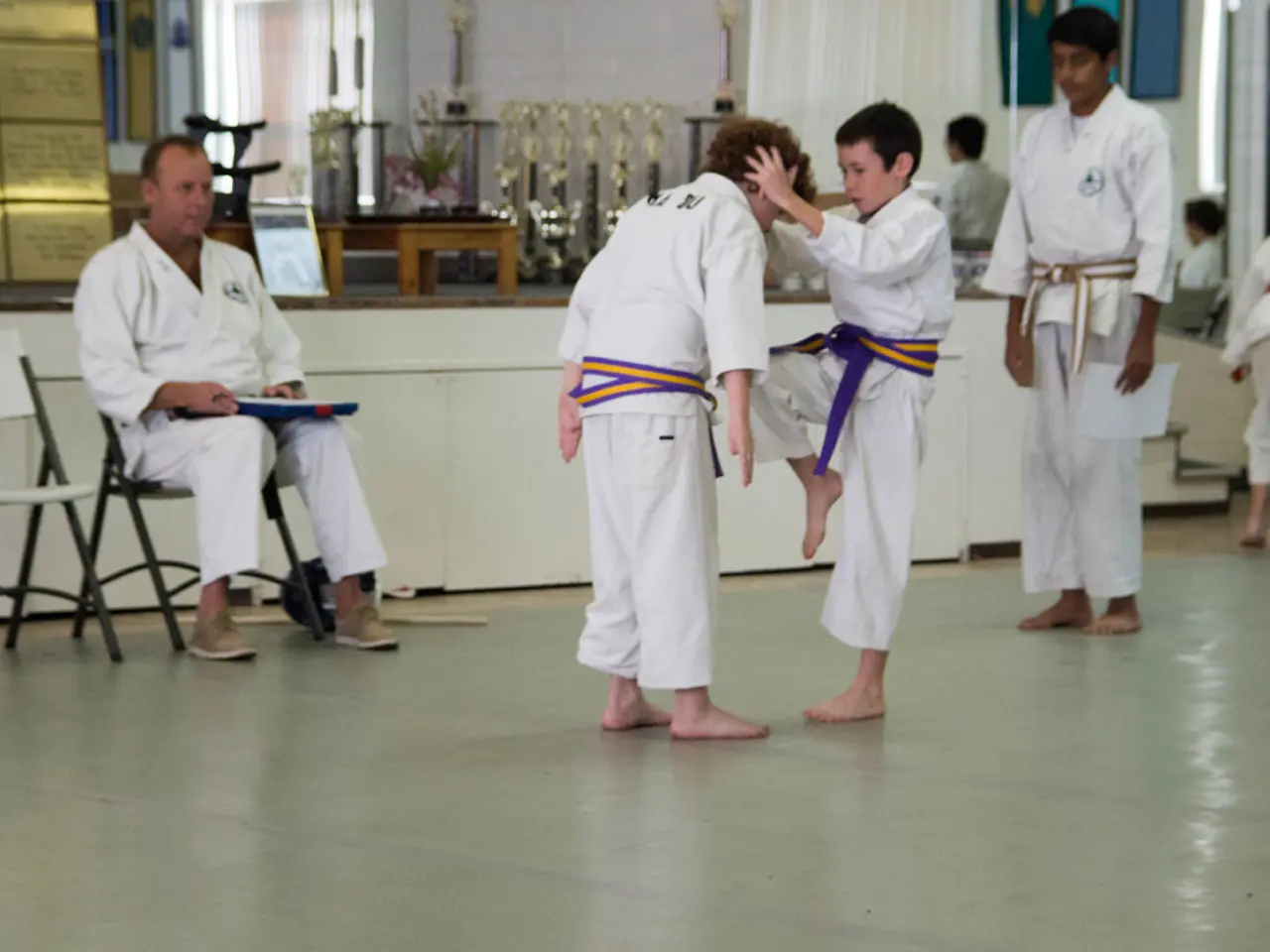Possible causes for a neck producing a crunching sound could include strained or damaged muscles, vertebrae out of alignment, or degenerative joint disorders such as osteoarthritis.
In the realm of everyday life, hearing a popping, cracking, or crunching sound in your neck might not seem like a cause for alarm. However, persistent neck crunching sounds accompanied by pain or swelling can be a sign of underlying health issues.
When faced with such symptoms, consulting a healthcare professional is essential. A medical expert will review your medical history, perform a physical examination, assess your range of motion, and evaluate any pain or discomfort you experience when moving your neck.
Several health conditions affecting the neck joints, bones, and surrounding tissues can cause persistent neck crunching sounds accompanied by pain or swelling. Key potential causes include:
- Cervical spondylosis (neck arthritis): An age-related wear and tear condition of the cervical spine that can cause neck stiffness, pain, and grinding or popping sounds when turning the head. It may also result in radiating pain, numbness, or tingling in the arms or hands.
- Cervical radiculopathy: Compression or irritation of a nerve in the neck, often referred to as a "pinched nerve," leading to neck pain, shooting pain down the arms, muscle weakness, or tingling sensations.
- Cervical spinal stenosis: Narrowing of the spinal canal in the neck that compresses nerves, causing neck pain or stiffness, weakness, and numbness.
- Rheumatoid arthritis: An autoimmune disorder that can affect neck joints, causing inflammation, pain, stiffness, and grinding sounds due to joint damage.
- Degenerative disc disease: Abnormal weakening of the water-infused discs between vertebrae leading to neck stiffness, pain, and limited movement.
In addition, inflammation of surrounding tissues, such as bursitis or tendonitis, may cause swelling, pain, and noises due to friction. These conditions are more commonly reported in larger joints like the knee, but they could potentially occur in neck tissues as well.
Other less specific causes of joint noise and swelling include loose bodies in joints (fragments of bone or cartilage), past injuries affecting joint structure, or false joints from improper fracture healing.
While less common, serious conditions like meningitis should be considered if neck stiffness is severe and accompanied by systemic symptoms. Meningitis causes nuchal rigidity but is not typically associated with joint crunching sounds.
In summary, persistent neck crunching with pain or swelling often indicates underlying joint or nerve pathology such as cervical spondylosis, radiculopathy, spinal stenosis, or rheumatoid arthritis. Diagnosis usually requires clinical examination and imaging like MRI or X-ray to identify the precise cause and to guide proper treatment. If neck crunching is new, worsening, or accompanied by neurological symptoms, swelling, or significant pain, medical evaluation is important.
It's also worth noting that crepitus, the medical term for various sounds joints make when they move, including popping, grating, snapping, clicking, catching, clunking, and grinding, are not typically a cause for concern. However, any joint noise that occurs for a prolonged period of time or that causes pain should be discussed with a healthcare professional.
Moreover, poor posture can lead to wear and tear or damage to the neck, causing pain in the neck, arms, head, or shoulders, as well as stiffness and clicking or popping noises when moving the neck. Maintaining good posture is crucial for the health of your neck.
Two common benign causes of neck noises are air escaping from the synovial fluid and tight ligaments snapping off of one bone and onto another. An injury can lead to degeneration and damage to the joints in the neck, causing symptoms such as shoulder or arm pain, neck stiffness, headache, dizziness, and facial pain.
In conclusion, while occasional neck noises may not be a cause for concern, persistent crunching sounds accompanied by pain or swelling should prompt a visit to a healthcare professional. Maintaining good posture and being aware of potential causes can help keep your neck healthy and pain-free.
- In some cases, the medical condition called cervical spondylosis, or neck arthritis, can lead to neck crunching sounds, pain, and stiffness, possibly causing radiating pain, numbness, or tingling in the arms or hands.
- Dermatitis might not be directly related to neck issues, but maintaining good health-and-wellness overall is crucial for the body's overall functioning, including the prevention of conditions like cervical spondylosis.
- A healthcare professional may prescribe predictive therapies and treatments for conditions like cervical spondylosis, depending on the severity and extent of the damage to the neck joints.
- Atopic individuals are more prone to certain medical conditions, including skin conditions like dermatitis, which can divert their attention from potential neck issues that may require immediate medical attention.
- Alzheimer's disease, being a neurological disorder, is not typically associated with neck crunching sounds or neck problems; however, maintaining overall health is essential for the body's optimal functioning and reduced risk of developing various medical conditions.
- Obesity can lead to a range of health problems, including joint pain and issues such as arthritis, which may contribute to swelling, pain, and crunching sounds in the neck over time.
- Therapies and treatments for conditions like obesity and arthritis may include lifestyle changes, regular exercise, a balanced diet, and possibly the use of CBD to manage pain and inflammation.
- Chronic neck pain and other related symptoms such as shoulder pain, swelling, or persistent crunching sounds should be investigated further to rule out more serious medical-conditions like hepatitis or atopic disorders affecting internal organs.




